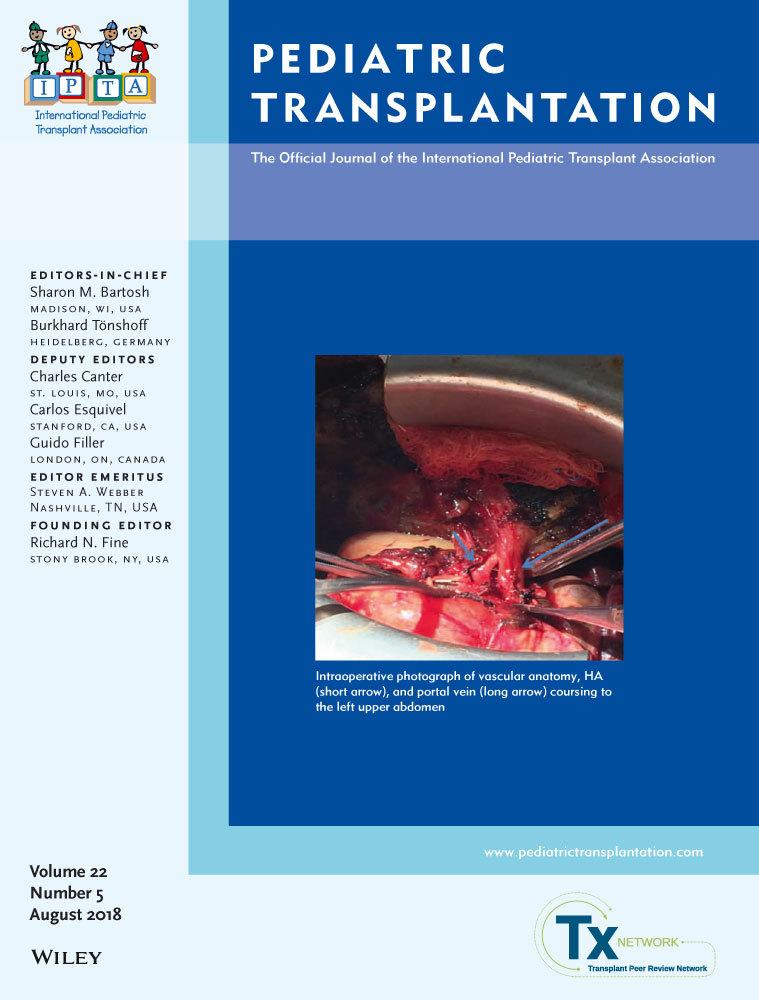Treatment of recurrent focal segmental glomerulosclerosis post-kidney transplantation in Australian and New Zealand children: A retrospective cohort study
Abstract
Disease recurrence affects around a third of renal transplants for children with FSGS and is associated with poor graft outcomes. Unfortunately, there are no large trials guiding treatment for recurrent FSGS. We aimed to describe current therapies and treatment response for recurrent FSGS in 4 centres in Australia and New Zealand. Data were collected on children (age <18 years) with recurrent FSGS (1990-2015). We reviewed patient charts to obtain clinical information. Ethics approval was obtained from the relevant boards. Complete records were available on 24 patients (62% female, 54% Caucasian). Median time to first recurrence was 4 days (IQR 2-5 days). There were 14 separate treatment regimens, involving an average of 2 agents. The most common therapies were plasma exchange (20/24 patients, 83%), cyclosporin (15/24, 63%), and methylprednisolone (9/24, 38%). Full remission was achieved in 15 (63%), partial remission in 2 (8%), and no remission in 7 (29%) patients. Of the patients with no remission, 5 lost their graft to recurrent disease and 1 to concurrent acute vascular rejection. The plethora of different treatment regimens reflects the poor evidence guiding management for recurrent FSGS. More research is needed to improve outcomes.




